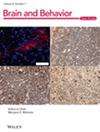Causal Effects of Immune Cell Populations on Cognitive Performance: A Mendelian Randomization Study
Abstract
Background
Recent research has started to uncover an important connection between immune system activity and cognitive abilities. Although correlative associations have been documented, the causal mechanisms connecting specific immune cell subpopulations to cognitive capabilities remain insufficiently characterized. Our research aimed to determine directional relationships between distinct immune cell subtypes and cognitive function, potentially identifying targets for immunomodulatory interventions.
Methods
We performed a two-sample Mendelian randomization (MR) analysis using genome-wide association study data from 3757 Sardinian individuals, paired with detailed immunophenotyping. We also incorporated cognitive performance summary statistics from the cohort described by Lee et al. (n = 257,841). Our analytical strategy utilized various MR techniques, with inverse variance weighted analysis serving as the primary method. To confirm result reliability, we conducted sensitivity analyses, including weighted median estimation, mode-based approaches, MR-Egger regression for evaluating pleiotropic effects, MR-PRESSO for outlier identification, and Cochran's Q-statistic to examine heterogeneity. Additionally, to explore possible reverse causation mechanisms, we conducted bidirectional MR analyses.
Results
Post false discovery rate (FDR) correction (PFDR < 0.05), we identified two immune cell phenotypes significantly linked to cognitive performance. IgD− CD27− B cells %lymphocyte showed a positive correlation with cognitive outcomes (β = 0.04, 95% confidence interval [CI]: 0.02–0.06, PFDR = 3.02 × 10^−2), whereas unswitched memory B cells %lymphocyte demonstrated negative association (β = −0.06, 95% CI: −0.09 to −0.03, PFDR = 3.02 × 10^−2). When applying stricter statistical thresholds (p < 0.005), five distinct immune subpopulations demonstrated significant relationships: among B-lymphocytes (IgD− CD27− B cells, CD27+ memory B cells, and CD38+ transitional B cells), T-lymphocytes (CCR7+ naive CD4+ T cells), and mononuclear phagocytes (HLA-DR+ CD14− CD16− cells). These findings reveal distinct immunophenotypic signatures potentially influencing cognitive function through various cellular pathways. Importantly, bidirectional MR analyses revealed no significant causal effects of cognitive performance on these immunophenotypic signatures, strengthening the directionality of our primary findings.
Conclusion
These findings suggest that seven distinct immune cell phenotypes may play a causal role in cognitive functioning. The absence of reverse causality further supports that these immunophenotypes likely influence cognitive outcomes rather than being consequences of cognitive function. The identified causal associations indicate potential immune pathways that could be relevant for modulating cognitive function. These immune signatures may serve as key regulators in cognitive performance-associated inflammatory pathways.


 求助内容:
求助内容: 应助结果提醒方式:
应助结果提醒方式:


